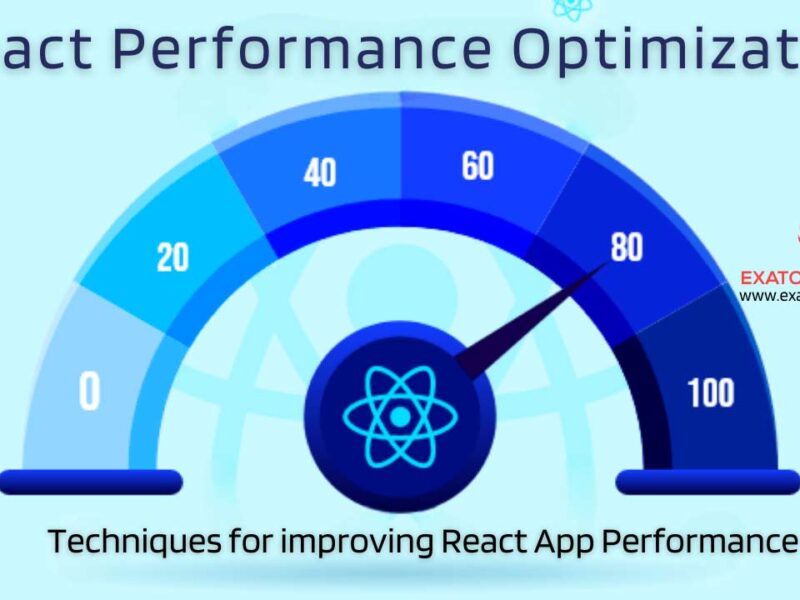Nowadays, creating mobile apps is popular. The term “White label mobile app development” is still relatively new in the field of app development.
You have a few options if you want an app for your company. This includes employing an in-house team to create a custom app, working with an outsourcing firm, or purchasing white-labeled software.
The issue is that you need to thoroughly research each of these options before choosing one. Additionally, there are some intriguing advantages and disadvantages to white-label that you should consider.
We will go over all you need to know about white label mobile applications in this blog because there are still some individuals who are mainly unaware of the concept, including its advantages and disadvantages.
So, if you are interested in white-label apps, read these blogs till the end.
What Is White Label Mobile App Development?
The white label model is not innate to the creation of mobile apps. And you may have heard the word mentioned quite a bit in the business sector. Now, creating white label apps isn’t all that different.
White label apps are, in essence, developed by mobile app development companies to resell them. And the company that purchases it has the option to rebrand it under its name.
With this idea, enterprises and startups may develop fully functional mobile applications for the lowest feasible cost.
Based on detailed market research, etc., the white-label development businesses can either construct a completely working app with every required functionality or they can build a basic framework that gives the customer a bit more customization.
However, the latter likewise includes the complete fundamental feature. Later on, we’ll talk about the many kinds of white label apps.
To recap, a business purchases a white-label app solution not only for its use but also to resell to a different party. And this results in the growth of a sizable network of the same. Everyone adores white-label apps for some reason.
Let’s first talk about the many kinds of white label apps before moving on to the advantages and downsides.
Types Of White Label Mobile Apps
We offer several kinds of white-label mobile app development services depending on what our clients want and what the market wants. Two separate categories of white-label apps are present here. Furthermore, these are, as follows:
Bare-Bone White Label Mobile App
Bare-bones white-label apps have all the essential features, functionality, etc. as the name says. Except for the front-end code, everything is yours.
You read it correctly—this kind of white label software just includes the back-end code. This allows the customer the freedom to alter the front-end to suit their tastes.
Ready-to-Launch White Label Mobile App
A ready-to-launch solution, as opposed to the preceding one, can be introduced to the market as soon as it is purchased. Everything is included, including a full front-end.
The fact that this solution doesn’t give you a lot of customization options is a disadvantage.
There are two different kinds of white label app development services available. In light of this, let’s examine some well-known white-label app instances.
White-Label App Example
Pros Of White Label App Development
Now you are fully informed about white label app development it is time to consider the advantages. In the part after this, we’ll talk about the negatives. So, with all of that stated, let’s get right to it:
Easy on Pocket
One of the greatest benefits of white label apps is this. White-label apps’ cost-effectiveness stands out in the commercial world, where costs are always rising.
The choice is substantially less expensive, even if one compares with other kinds of mobile app creation, such as iPhone or Android app development. This is since traditional mobile app solutions are created specifically for you, which is a very simple explanation. That implies that you pay for everything as you receive it.
The solution created in white-label app development targets numerous clients, therefore this is not the case. Consequently, a considerable increase in the cost-to-profit margin is achieved. This also translates into a considerably more affordable option for you.
No Stressful Development
Everyone may agree that the process of developing a mobile app is rather stressful. To ensure that you are creating the appropriate product, you must manage a variety of issues and tasks. And this could continue for several months.
Now, when it comes to white label apps, this is something that is entirely missing. You are leaving behind a lot of tension because you are not responsible for any aspect of progress. All you have to do is seek advice from a business and purchase the remedy.
Avail On Demand
As we covered in the last part, developing a mobile app from scratch is a labor-intensive process. You need to mix different components, employ a mobile app developer, and do a lot of other things. It is time-consuming and stressful at the same time.
White-label mobile apps are also easily accessible and available on demand. All you have to do is go out and purchase these apps. You have nothing to be concerned about. You receive this as yet another top benefit from white label app development.
Better Branding & Marketing
Of course, branding and marketing are crucial components of developing a successful company and mobile application. Additionally, a lot goes into the solution’s effective branding and promotion.
But everything is easier, better, and faster with white label mobile apps. These solutions are designed for rebranding and customization under corporate requirements. This greatly facilitates the marketing process for the company employing the white label product.
This is one of the features that makes white label apps popular and a wise decision for your company.
Mobile App Maintenance & Support
One of the most crucial aspects of keeping a mobile app consistent in the market, is maintenance and support. And this is significant for a variety of reasons. However, it includes a cost.
Again, in the case of white label development, maintenance and support are commitments of the app’s developer. They have a specialized group of professionals who will take care of your apps and keep you informed about them.
Faster Time-to-Market
The term “time to market” describes the duration from the ideation phase to the time the app is released onto the market. Additionally, white label apps have a significantly shorter time to market than their competitors from the buyer’s standpoint.
Reduce Risk of Failure
The likelihood of failure is relatively significant when creating an app from scratch. Because it is entirely based on client preferences, market research, and information, there is no assurance that it will be successful.
Cons Of White Label Apps
All the bells and whistles are part of the white label application. But this does not negate the existence of disadvantages. This section will address a few of these difficulties.
Limited Customization
People typically prefer a traditional mobile app development business over a white label one for several compelling reasons. One of these is the solution’s rigidity to customize. Although this doesn’t significantly impact the performance of the mobile app, for some people it can be a deal-breaker.
Brand Overlap
This element is closely related to the preceding one. The solution works for numerous clients, with slight alterations, which results in brand overlap.
Source Code Ownership
Another element that many firms may find to be a deal-breaker is this one. The business will provide you program, but no ownership of the source code or access to the server. The company that develops apps will take care of this.
White Label Vs. Custom App Development
We have already covered all there is to know about the white label mobile app. And you may have found yourself drawing comparisons between it and traditional custom mobile app development.
Custom app development gives you a mobile app created just for your company and your preferences. Tailored to meet your demands and objectives. It entails a lengthy development procedure with several steps as a result.
Additionally, you create a unique interface and design with the function you deem useful. You can now pick hybrid mobile app development or hire iOS or Android app developers to make a customized mobile app.
How Much Does White Label Mobile App Cost?
While it is not possible to accurately predicate the White Label App Cost, it may fall anywhere between the range of $5,000 to $ 65,000.
EndNote
White label apps provide several compelling advantages that draw many users from all around the United States of America. After learning about the concept, you should speak with a reputable white label app development company if you want to get a white label mobile app for your company and begin setting revenue records.



